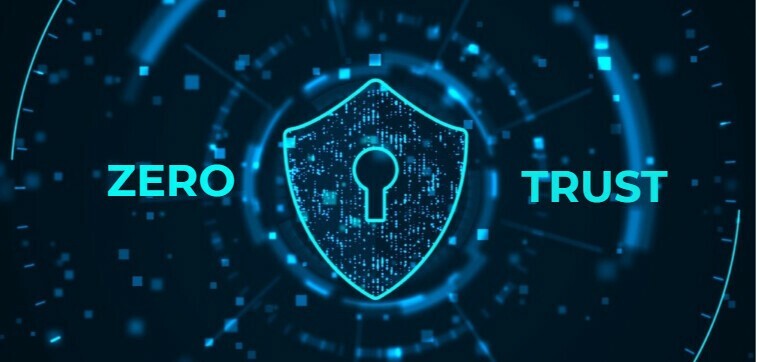As cyber threats become increasingly sophisticated, Nigerian enterprises face significant challenges in protecting sensitive data and maintaining secure networks. Traditional security models, such as the “castle and moat” approach, are proving insufficient. This is where the Zero Trust Security Model comes into play — a transformative approach designed to meet the demands of modern cybersecurity.
In this article, Sebastine, a seasoned Information Security Engineer with expertise in Cybersecurity, DevOps, and CISO roles in Nigeria, explains why adopting Zero Trust is essential for Nigerian businesses now and in the foreseeable future.
1. Understanding the Zero Trust Security Model
Zero Trust operates on the principle of “never trust, always verify.” Unlike traditional security, which assumes that everything inside the network is safe, Zero Trust continuously verifies users, devices, and applications at every access point.
- Continuous Verification: Zero Trust ensures that every user, device, and application is continuously verified to prevent unauthorized access.
- Micro-Segmentation: Zero Trust segments the network, limiting access to different sections and minimizing attackers’ lateral movement.
- Least Privilege Access: Users are granted only the permissions they need to perform specific tasks, reducing exposure points and access risks.
By assuming that every connection could potentially be compromised, Zero Trust employs strict access controls and frequent authentications to maintain security.
2. Protecting Against Insider Threats
Insider threats, whether from employees, contractors, or vendors, pose a significant risk to Nigerian enterprises. Zero Trust is designed to address these risks by enforcing stringent access policies and monitoring unusual activities within the network.
- Enhanced Access Controls: Even trusted insiders undergo regular authentication checks, ensuring that only authorized users access sensitive data.
- Anomaly Detection: Continuous monitoring helps identify suspicious activities within the network, such as unauthorized data access or unusual login locations.
Real-World Example
For example, a Zero Trust system would detect an unauthorized login attempt from a new device or an unexpected location and prompt for additional verification, ensuring that any malicious intent is quickly identified and blocked.
3. Adapting to Remote Work and Hybrid Environments
In 2024, many Nigerian enterprises have adopted remote and hybrid work models, expanding the network perimeter and increasing vulnerability. Zero Trust enables secure access in these environments by treating each device and access point as a potential threat.
- Securing Remote Access: With multi-factor authentication (MFA) and endpoint security, Zero Trust ensures that only verified users and devices access company resources.
- Seamless Integration with Cloud Services: Zero Trust integrates with cloud platforms like AWS and Azure, enabling secure access and control across cloud environments.
By securing every connection, Zero Trust enables Nigerian businesses to support flexible work environments without compromising security.
4. Aligning with Regulatory Compliance
The Nigeria Data Protection Regulation (NDPR) enforces stringent data protection and privacy standards. Zero Trust helps businesses align with these requirements through robust access management and data protection policies.
- Improving Data Governance: Zero Trust policies help monitor data flows and control access, essential for compliance with NDPR.
- Simplified Audit Trails: Continuous verification and logging provide auditable records that demonstrate regulatory compliance.
For Nigerian enterprises, compliance with NDPR is crucial not only for avoiding penalties but also for building trust with clients and partners.
5. Reducing the Financial Impact of Cyber Attacks
Cyber incidents can have devastating financial consequences, especially for Nigerian businesses without robust defenses. Zero Trust reduces these risks by limiting unauthorized access and swiftly detecting breaches.
- Minimizing Damage from Breaches: By enforcing strict access controls, Zero Trust restricts the potential reach of attackers, limiting data exposure.
- Reducing Downtime Costs: Faster breach detection and containment can significantly reduce downtime, ensuring business continuity.
Financial Advantage
Businesses that implement Zero Trust Security often experience reduced costs associated with downtime and data breaches, leading to a stronger financial outlook and increased customer confidence.
6. Future-Proofing Against Emerging Threats
Cyber threats continue to evolve, requiring Nigerian enterprises to stay ahead of attackers. Zero Trust is a flexible and dynamic model that adapts to new threats, making it a robust defense against emerging risks.
- AI and Machine Learning Integration: Zero Trust systems often incorporate AI to detect and respond to unusual activity in real-time, increasing resilience.
- Scalable and Flexible: As businesses grow, Zero Trust can be scaled and customized to address new security requirements, providing a long-term solution.
Meanwhile, By adopting Zero Trust, Nigerian enterprises can proactively protect themselves against next-generation cyber threats.
Conclusion: Zero Trust as a Strategic Move for Nigerian Enterprises
For Nigerian enterprises, the Zero Trust Security Model is not just a trend; it’s a necessary evolution in cybersecurity. Its comprehensive approach to verification, access control, and continuous monitoring aligns perfectly with today’s security challenges, from insider threats to remote access vulnerabilities. Furthermore, By adopting Zero Trust in 2024, Nigerian businesses can strengthen their defenses, protect valuable data, and position themselves as leaders in cybersecurity resilience.
Call to Action
Also, To secure your enterprise in Nigeria, adopting a Zero Trust approach could be the pivotal step. Finally, Reach out to cybersecurity experts like Sebastine to learn more about how Zero Trust can transform your organization’s security strategy.

